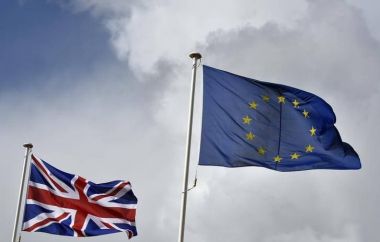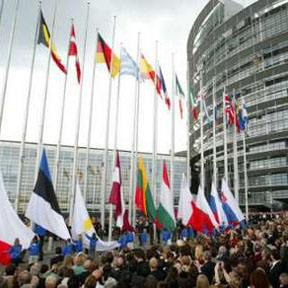The EU referendum explained: what's happening and how did we get here?

2016 could see one of the most seismic shifts in generations in British politics. On June 23, the people of the UK will be given the chance to vote on whether to leave the European Union or remain as part of it. The last time we were consulted on the topic was more than 40 years ago.
Why is this happening now? How did we get to this point? When will the vote happen? All these and more questions are answered in our brief guide.
The European Union began in the aftermath of the Second World War. Europe had been torn apart twice in only 20 years. Both the First and Second World wars saw devastation brought to the continent as millions of soldiers and civilians were killed, empires were brought down and fascism defeated.
Looking back further into history, Europeans still had the memories of the Franco-Prussian War of 1870-1 and even further back to the devastating Thirty Years War. These were conflicts which pitted neighbours against each other and left devastation in their wake – 25-40 per cent of the population of Germany was killed in the Thirty Years War, for example.
When the carnage of World War Two finally ceased, countries in Europe struggled to get themselves back on their feet. With the Iron Curtain descending, Western Europe soon realised it was on the front line of the Cold War between America and the USSR. A military alliance began to be formed in the shape of NATO, while the United Nations was founded in an attempt to see diplomacy succeed war as the tool of choice for disputing nations.
While these post-war institutions were developing, six counties in Europe decided that a trading bloc was also needed, to improve economic conditions. In 1957, the Benelux countries (Belgium, The Netherlands and Luxembourg) banded together with their larger neighbours France, Germany and Italy to sign the Treaty of Rome.
This led to the foundation of the European Economic Community. Over the coming decades these countries began to work more and more closely on economic affairs, and were joined by others. Here in the UK, we didn't join until 1973 – under the Conservative Government of Edward Heath. When Labour won power the following year, a referendum was held to ask the British people their opinion. A majority (67 per cent) wanted to remain 'in Europe' and we have done so ever since.
However, the institution that we remained part of has changed vastly in that time. From the original six members, the group has grown to 28 states from both sides of the former Iron Curtain. With a population of over 500 million contained within those countries, the now re-named European Union is far more than a simple trading bloc.
It has a Parliament, an anthem, three presidents (one of the Council, one of the Commission, one of the Parliament), a court and legal system and is now a political as well as economic organisation.
The relationship Britain has had with the EU has always been complex. Initially, ambivalence to the European project came mainly from Labour MPs. Gradually, throughout the 80s and 90s as Labour became more pro-EU, the Conservatives went the other way. John Major's term as Prime Minister was marred by internecine warfare within the Tory Party over how closely the UK should be integrated into the EU.
While the Conservatives were out of power, this infighting took a back seat and Labour remained resolutely pro-EU. But when the Conservatives returned to government in 2010, and with the rise of the United Kingdom Independence Party, the issue was back on the agenda.
In a bid to ward off a split, Prime Minister David Cameron promised that a post-2015 Conservative government would hold a referendum to decide if the UK should remain part of the EU. He would hold the referendum only once he was satisfied that he had got a better deal for Britain on a key Conservative issue, the ability to restrict immigration.
That process was concluded last week, with the other EU countries agreeing to a seven-year 'emergency brake' on in-work benefits for their citizens working in the UK and child benefit payments indexed to the cost of living for children living outside the UK. Britain also gets an opt-out from the drive to 'ever closer union', first signalled in the 1957 Treaty of Rome. The referendum will be held on June 23.

At the moment the polls seem to indicate a small majority of people would vote for the UK to remain part of the EU. However, the polls were notoriously unreliable ahead of last year's General Election and given there hasn't been a referendum on EU membership since 1975, there is little precedent here. While it's thought the majority of Conservative MPs and the large majority of Labour MPs will encourage a vote to remain in the EU, the strength of feeling about the role of the EU – especially in non-metropolitan areas – shouldn't be underestimated.
However, there are huge issues at stake. The sovereignty of the country, how we deal with the refugee crisis and wider immigration, vast trade deals and healthcare, workers' rights, defence and security, climate change and much, much more besides.
So far most churches and Christian organisations have kept a low profile – not wanting to be drawn on such a volatile political issue. The interest is sure to reach fever pitch in the run-up to the referendum, though, so it wouldn't be surprising to see some interjection in the debate from key leaders and organisations.
Whatever happens, it's set to be a landmark year in British political history...
The Church of England's 'Reimagining Europe' blog is a useful resource for further research and debate.











